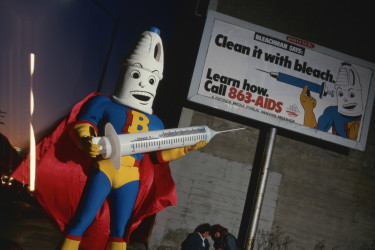In the American debate, drug addiction had been framed as an infection and contamination of white America by foreign influences. Now, that vision was internationalized. To protect white American moral purity, the supply of drugs from overseas had to be curtailed at their source. As the campaigner, Richard P. Hobson had it, "like the invasions and plagues of history, the scourge of narcotic drug addiction came out of Asia."
In 1909, America succeeded in convening the first International Commission on Opium in Shanghai. Representing the US was Bishop Brent and the doctor Hamilton Wright, who was to become a major force in the American prohibitionist movement. For the next century, almost every major international conference and commission on drug control was formed through American pressure and influence.
Interestingly, despite what we are told about the "special relationship," the country that offered the most consistent and organized resistance to the American drive toward drug prohibition was the United Kingdom. Time and again, Great Britain diplomatically frustrated American attempts to impose prohibition regimes and establish international protocols.
This was partly because the British were themselves operating lucrative opium monopolies in their own overseas colonies, but also because they resented "overtones of high-mindedness and superior virtue." Britain had its own system of dealing with drug addiction—treating it as a medical rather than a law enforcement issue—and, for a long time, resisted the moralizing hysteria of the American approach.
But it was difficult for the US to push the prohibition of drugs on the rest of the world while not enforcing it itself. Wright began spearheading a fresh campaign for full drug prohibition within the US—once again built almost entirely on racial prejudice.
But this time, a new drug had emerged to capture America's fevered imagination, with a fresh racial minority to use it to persecute. The drug was cocaine, and the minority was African Americans. In 1910, Wright submitted a report to the Senate stating that "this new vice, the cocaine vice… has been a potent incentive in driving the humbler negroes all over the country to abnormal crimes."
This hysteria resulted in the Harrison Narcotics Tax Act of 1914, instituting the prohibition of drugs across the United States. Over the next 50 years, America would aggressively seek to internationalize its form of prohibition across the world.





